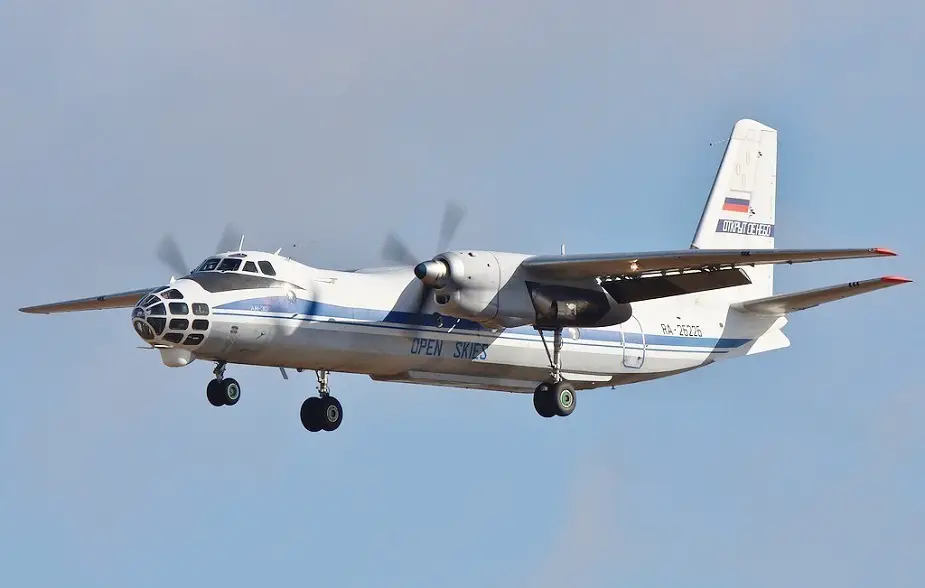Russia is launching domestic procedures to withdraw from the Treaty on Open Skies, the Russian Foreign Ministry said in a statement on January 15.
Follow Air Recognition on Google News at this link
 An-30, used during Open Skies observation flights (Picture source: Russian Air Force)
An-30, used during Open Skies observation flights (Picture source: Russian Air Force)
"Given the lack of progress in efforts to remove obstacles preventing the future functioning of the treaty in a new situation, the Russian Foreign Ministry is entitled to announce the start of domestic procedures to pave the way for Russia’s withdrawal from the Treaty on Open Skies," the statement reads. "Once the procedures are completed, notifications will be sent to the treaty depositories," the ministry added.
The US withdrawal last November “destroyed the balance of interests [the signatories] reached when the Treaty was signed, inflicted severe damage to its functioning and undermined the role of the Open Skies Treaty as a confidence and security building measure,” Russia’s foreign ministry said in a statement announcing that it would begin the formal process to withdraw from the pact.
When the US announced its plans to pull out in May last year, the Trump administration blamed Moscow, claiming that it had barred US flights over sensitive areas of Russian territory. The foreign ministry on Friday said that was “an artificial pretext”.
Open Skies was signed in 1992 and came into force in 2002. The treaty establishes a program of unarmed aerial surveillance flights over the entire territory of its participants. Observation flights are made over the territories of the United States, Canada, European countries, and Russia.
The 35 state parties to the Open Skies Treaty are: Belarus, Belgium, Bosnia and Herzegovina, Bulgaria, Canada, Croatia, the Czech Republic, Denmark (including Greenland), Estonia, Finland, France, Georgia, Germany, Greece, Hungary, Iceland, Italy, Kazakhstan, Latvia, Lithuania, Luxembourg, the Netherlands, Norway, Poland, Portugal, Romania, the Russian Federation, Slovakia, Slovenia, Spain, Sweden, Turkey, Ukraine, the United Kingdom .
The main purposes of the open skies regime are to develop transparency, render assistance in monitoring compliance with the existing or future arms control agreements, broaden possibilities for preventing crises and managing crisis situations within the scope of the Organization for Security and Cooperation in Europe and other relevant international organizations. Subsequently, it is contemplated to apply the open skies regime to new fields, such as environmental protection.
In practical terms, the treaty allows signatory states to perform observation flights over any part of the observed state party’s territory to monitor military activities in conformity with the agreed quotas of such missions. The treaty regulates observation flights procedures, establishes a mechanism of control over its observance, and sets requirements to the aircraft and observation equipment.
















